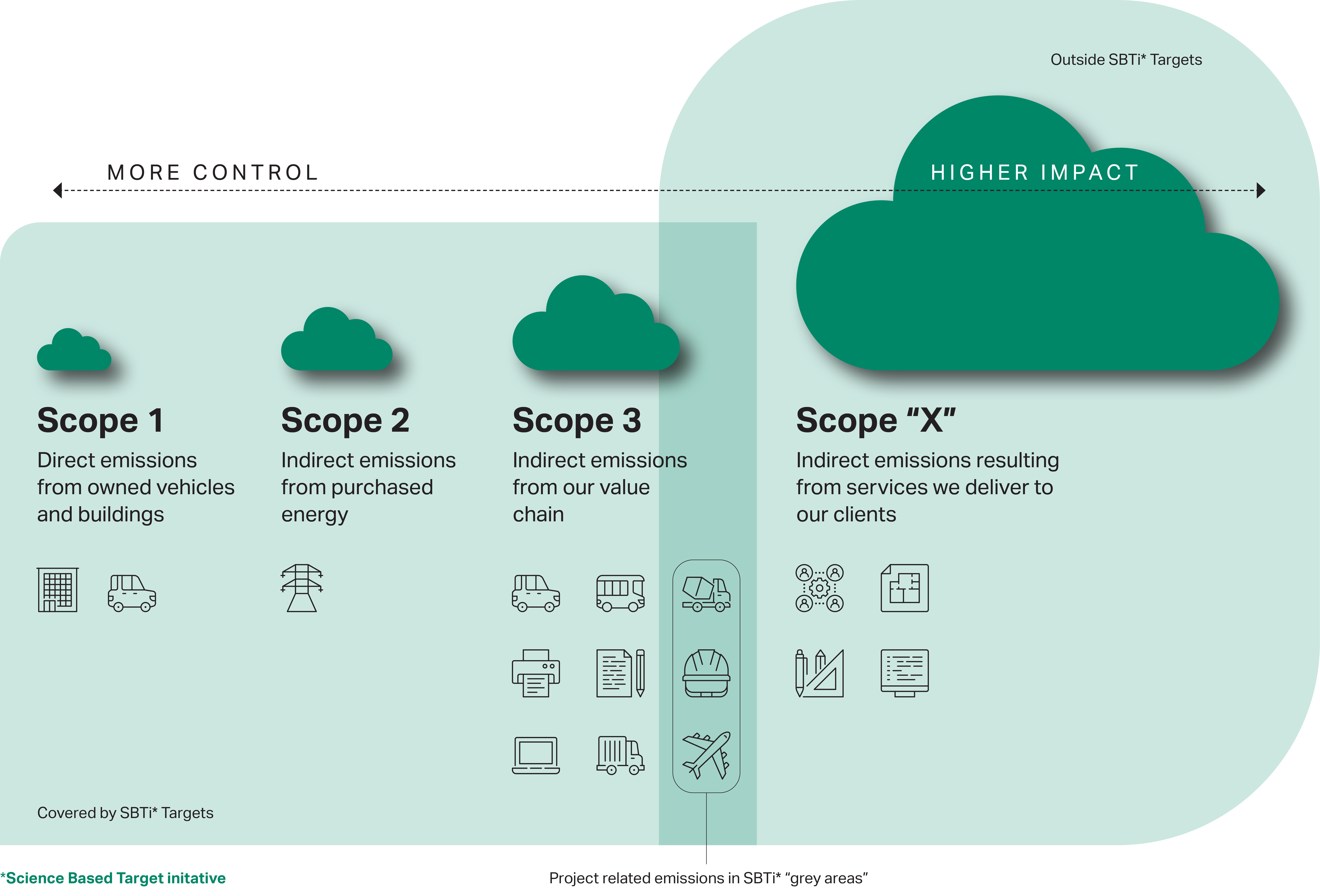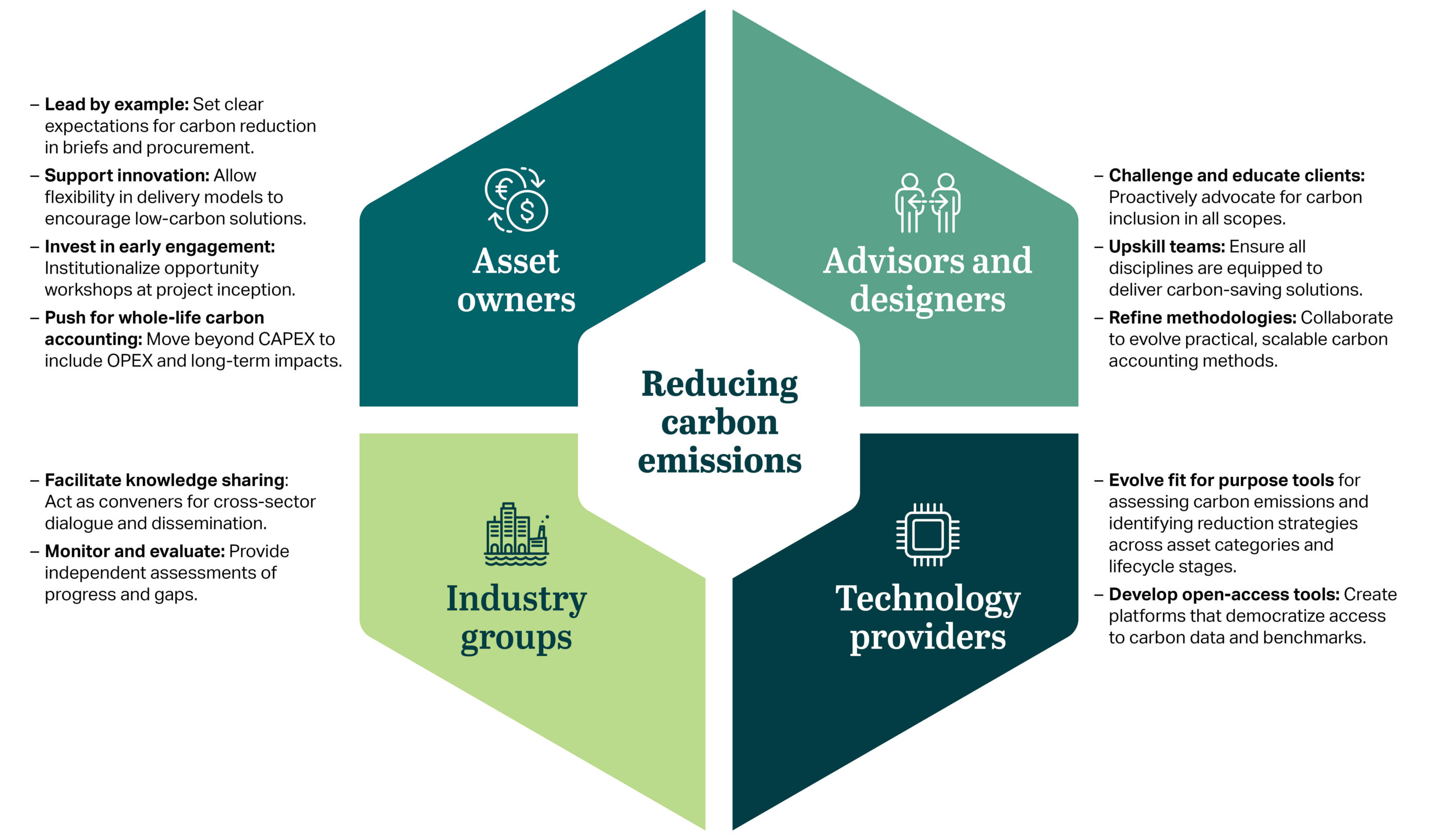From influence to impact: A new approach to carbon accountability in the Environment and Engineering Professional Services sector
Ida Namur is a certified environmental professional specializing in sustainability consulting and global program implementation. With over 20 years of experience in the professional services industry, her expertise includes sustainability, international development, environmental impact assessments and program management for private sector companies and government agencies. In her current role, she leads the development and implementation of ScopeX, AECOM’s approach to decarbonizing the projects we deliver for our clients.
The built environment is responsible for over half of global emissions — yet the carbon impact of design and advisory work remains largely invisible. We are about to change that.
Meaningful climate action is about translating ambition into tangible outcomes. In alignment with one of the impact goals for London Climate Action week, we came together as part of the “whole of society” engagement needed to support delivery of deep decarbonization and resilience.
As advisors and designers, we help set the course long before a shovel hits the ground, yet current carbon emissions standards often overlook the emissions tied to our work.

That’s why we co-authored the Estimating the Greenhouse Gas Impact of Advice and Designs report. This 2024 publication, developed in partnership with industry leaders, represents not just analysis – it marks a shift in mindset: from indirect influence to accountable impact.
As a co-founding partner of Pledge to Net Zero, AECOM hosted “Celebrating Progress in Measuring Carbon in Advice and Design” exploring how professional services firms can accelerate carbon reduction in the built environment through collaboration with clients.
A panel discussion featuring David Riley (Anglian Water), Geraldine Badura (Gatwick Airport) and James Ingram (Transport for London) offered valuable client perspectives:
- Carbon as business-as-usual: Carbon reduction must be integrated into standard project delivery, not treated as an add-on.
- Need for cultural shift: Success depends on organizational culture, skilled practitioners, and shared responsibility across the value chain, aligned with PAS 2080:23.
- Balance innovation and standardization: While prescriptive methods can stifle innovation, a shared set of principles allows flexibility with consistency.
- Metrics and progress tracking: We need meaningful metrics and year-on-year tracking to measure real progress – though the right metrics are still evolving.
Following the panel, cross-sector participants engaged in small group discussions on how environmental and engineering firms can reduce the indirect carbon emissions associated with their work. Key themes emerged:
Universal support for early engagement: Early-stage collaboration and opportunity workshops are essential for identifying carbon reduction opportunities.
Skepticism toward fee-based methods: Using fee as a proxy for carbon emissions lacks credibility.
Desire for practical metrics: There is a preference for emissions intensity over total portfolio emissions.
Digital tools are necessary but not sufficient: Tools like BIM are helpful but need better data integration and should complement, not replace, innovation.
What’s Next?
Based on the conversation, here are the recommended next steps each sector can take:

At AECOM, we are proud to lead by example through our ScopeXTM approach — a PAS 2080:23-verified global program of best practices and technology solutions. We are changing the way we think and act to include, consider and balance the carbon impact of our work.
Get in touch to learn how we can help you find opportunities to reduce carbon emissions throughout the project lifecycle.






